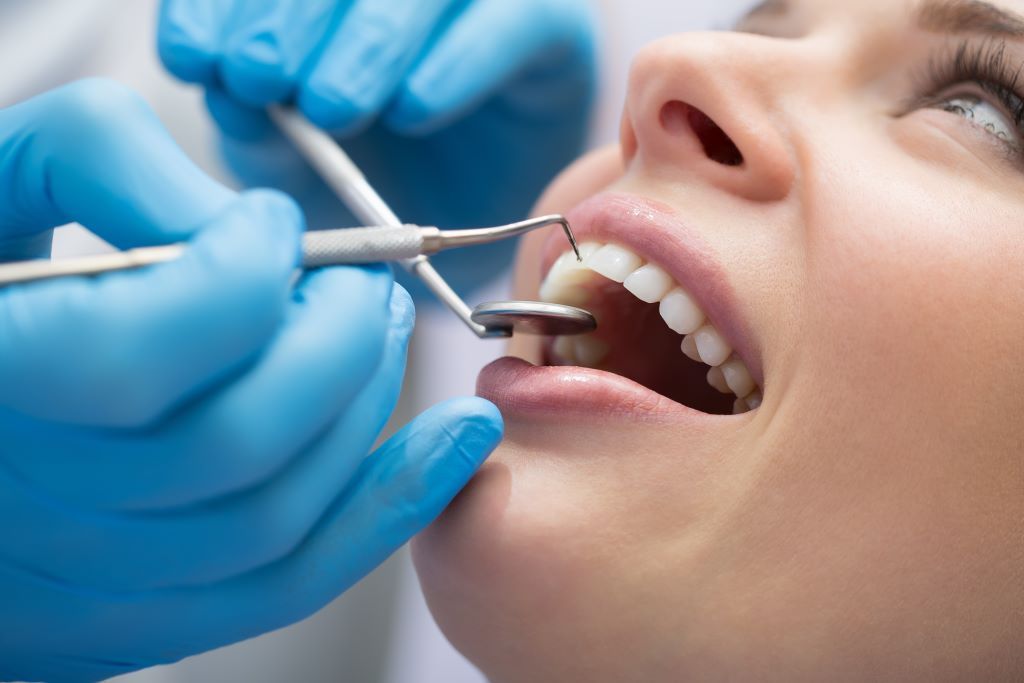
A year ago the chances of getting an NHS dental check-up in parts of North Cumbria were officially zero. Today the situation is worse.
A “dental desert” is how one leading North Cumbria practitioner described the situation in the county today.
He cited staff recruitment problems as a key factor and said to his knowledge not a single dentist in North Cumbria is currently taking on new patients – either NHS or private.
In 2022, a national survey of English council areas put parts of North Cumbria at the bottom of a list for dentists accepting NHS patients for free or subsidised treatment for their teeth.
John Lewis, practice principal at Ghyllmount Dental and chairman of the North Cumbria Local Dental Committee, is a man in the know when it comes to dental provision in the North.
His broad-ranging role includes liaising with NHS England and working as a special adviser for the Care Quality Commission – the government body charged with regulating and inspecting health and social care services in England – visiting two or three dental practices every week across the north.
Mr Lewis is also a trustee of a dental crisis helpline and is all too familiar with the misery caused when people need dental care and have nowhere to turn.
“In the last 12 months the situation has got worse,” he told the Reminder.
“The Covid pandemic made people reassess their lifestyles, many want to work fewer hours, work part-time, and have a different work/life balance. That is the workforce as a whole, not just in dentistry, but it has had a big impact.
“And it isn’t just dentists who are in short supply, it is the dental care professionals and support staff.
“Cumbria is a dental desert. I am not aware of a single dental practice in north Cumbria now taking on patients – and that’s NHS or private.”
Mr Lewis recently authored an article for the British Dental Journal, giving a Cumbrian perspective on the problems of recruitment in a rural area. In it he describes recruitment in areas like Allerdale as being “at breaking point”.
“It has always been difficult, and it has steadily got worse,” he wrote. “A great destination for holidays but not for a permanent move, according to many young graduates, who seem to want to stay in cities.”
He added: “Covid did create a backlog (of patients needing dental treatment), but more so it has brought to a head a crisis which was already happening.
“As has happened in the NHS, the service was stretched, and now it has gone beyond that.”
There were many factors driving new graduate dentists to big, corporate practices and away from smaller rurally-based businesses like his own.
These included bigger support networks and training opportunities.
“We need to start looking at what graduates really want and tailoring it, rather than just putting a job offer out there,” he said.
A fresh drive to pull dentists into Cumbria is on the cards, and John said it would target the young and newly qualified; “early downsizers” who had perhaps given up their own practices for more flexibility; and also the pool of potential overseas candidates.
Another factor at play in the current crisis is dentists’ long-standing wrangle with the Government over the contract under which their profession operates.
“Since it was introduced in 2006 it has not been fit for purpose,” said Mr Lewis, adding that although some amendments were made a couple of months ago, these were “fiddling”, and made “no difference whatsoever” to the underlying problems.
These included dentists working at a loss on many types of treatment, and no incentive at all for them to take on new patients with “high needs”, with that level of care not being financially viable.
“New graduates simply do not want to work for the NHS. It is the pressure and the time, the long hours, and the workload,” he said.
In the past, a Cumbria training scheme saw 10 newly graduated dentists come to the county each year. This number has now fallen to just two.
Ghyllmount has 10 dentists in total, four generalists and six with areas of special interest. Even with this relatively large workforce, Mr Lewis admitted there is a backlog of patients waiting for treatment.
“I have taken on extra staff to cope, but we are still not back to pre-Covid levels,” he said.
Asked what he would say to Reminder readers worried about the future of dental care, he said: “Don’t blame the dentists. They are doing their best. Contact your MP and press for a new dental contract.”








